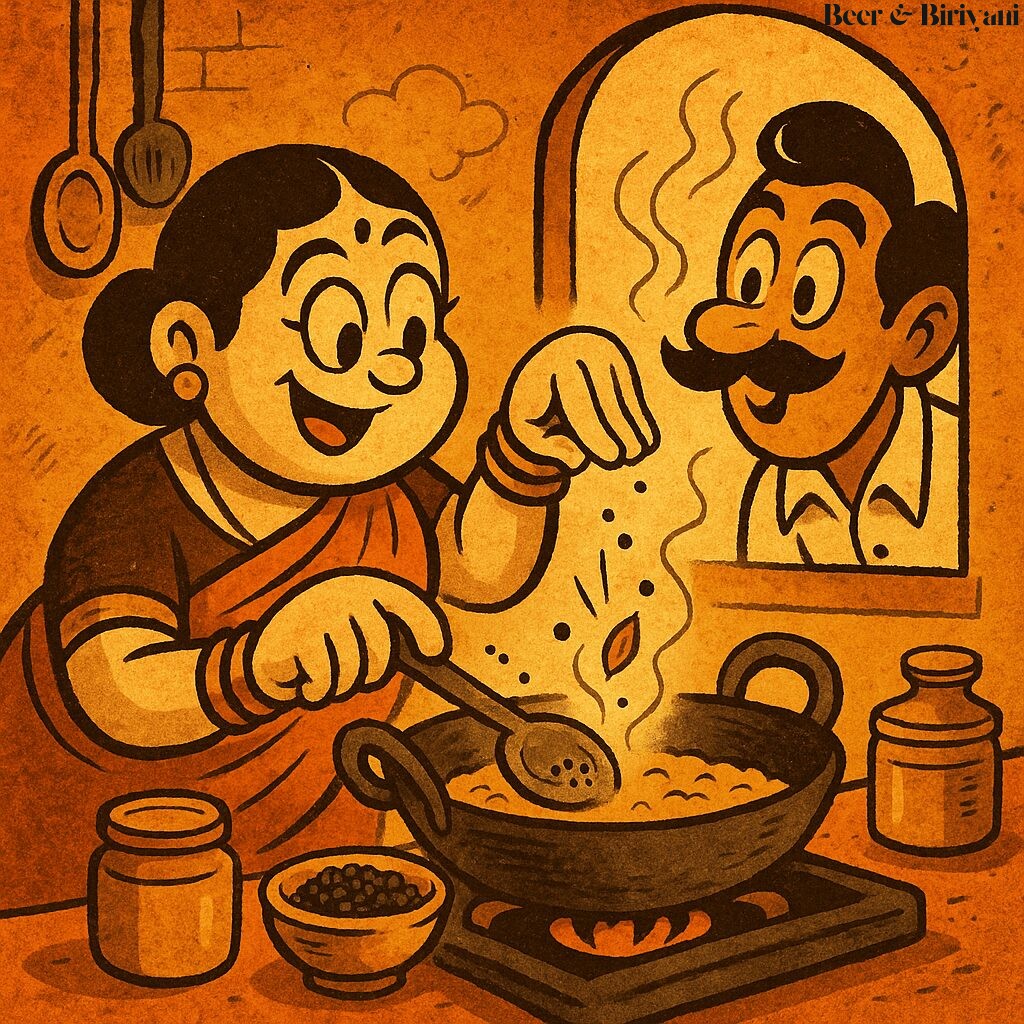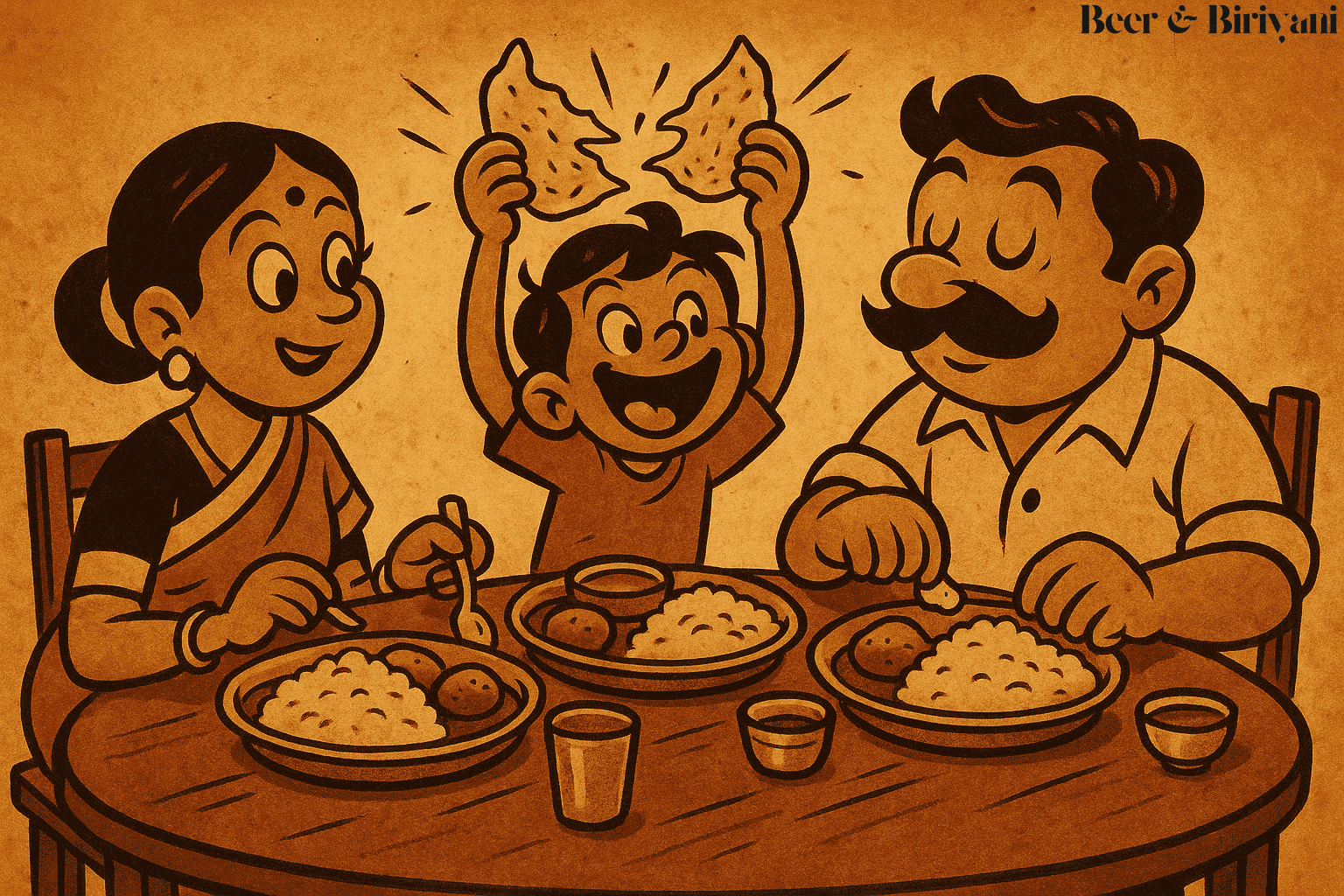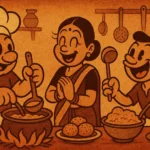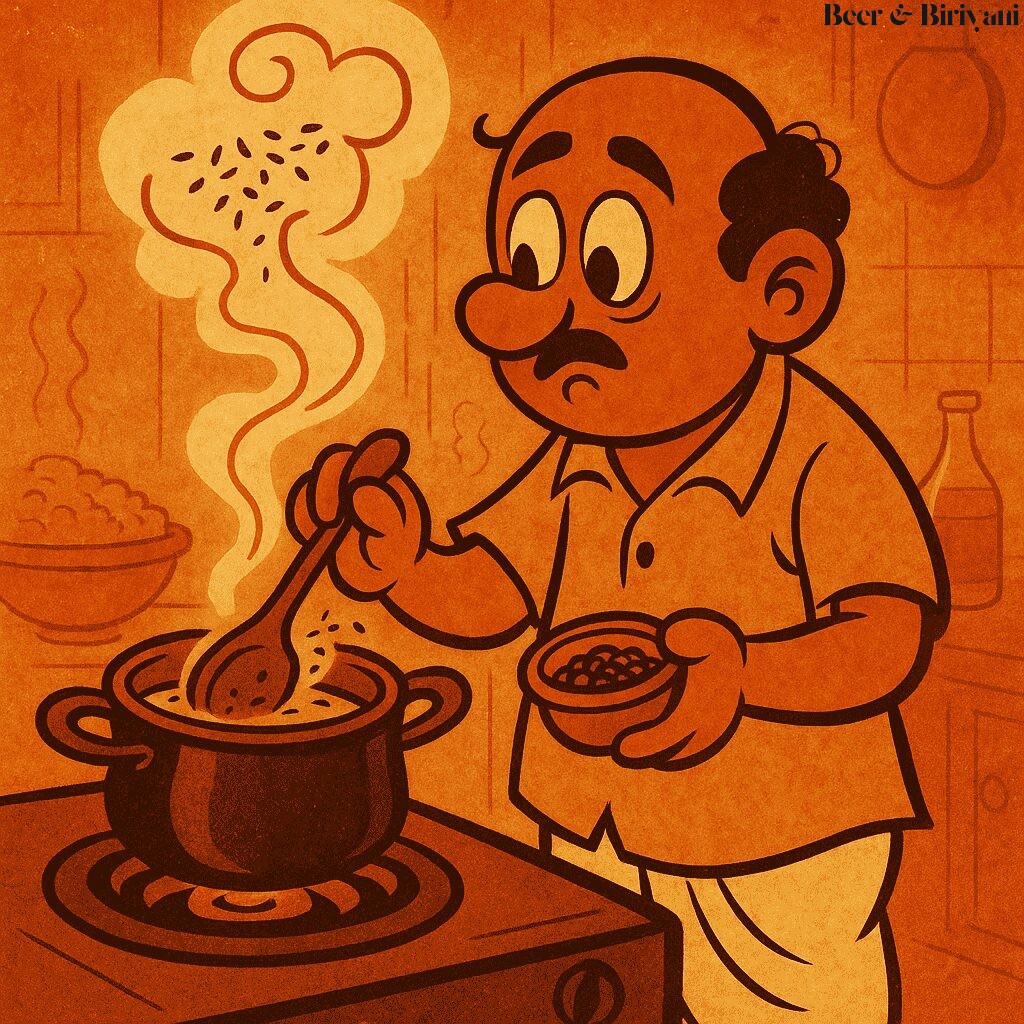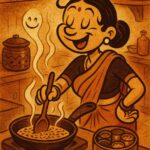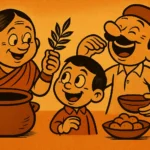In my kitchen growing up, cooking didn’t begin with heat. It began with sound. Specifically, that tiny, electric pop of mustard seeds in hot oil. Not a bang, not a hiss. A polite but firm “I’m here.” A signal. A ritual. A bit of suspense in the pan. You wait, ladle poised, for that first seed to crack—because that’s when you know: the oil is ready, the day has started, and the dish is about to come alive.
I used to think of that sound as background noise. Now I know better. It’s the heartbeat. The tadka isn’t just the beginning of a dish—it’s the story’s first line. And in many Indian kitchens, mustard seeds are the punctuation mark that kicks it all off.
The Auditory Cue of Home
Before you smell the curry leaves. Before the garlic hits the oil. Before the turmeric blooms. You hear it. That staccato tap-dance of black mustard seeds. They don’t announce themselves visually—they’re tiny, round, and matte. But once they touch hot oil, they become performers. Bursting one by one like applause in slow motion.
It’s a sound I didn’t realize I missed until I left home. In Austin, my kitchen is full of familiar ingredients, but that first pop? That’s what centers me. It’s what tells me I’m not just heating food—I’m waking it up.
More Than Just a Sizzle
Mustard seeds have been used in Indian cooking for centuries. Particularly in South Indian and Bengali cuisines, where they form the foundation of tadka, phoron, or baghar—that magical infusion of spices in hot oil poured over dal, vegetables, or even rice. And the beauty of mustard seeds is that they change character completely with heat. Raw, they’re sharp, bitter, almost abrasive. But once popped, they’re nutty, earthy, quietly powerful. Kind of like your favorite relative who only speaks when absolutely necessary—and always drops wisdom when they do.
Timing Is Everything
The tricky part? Getting it just right. Too soon, and the oil isn’t hot enough. The seeds sit there awkwardly, bloated and silent. Too late, and they scorch, turning bitter and making the whole house smell like guilt. But when you get it right—when that first seed cracks and its friends follow in a rhythmic burst—you feel it. You feel the transformation. You feel like someone who knows what they’re doing, even if the rest of the day is a mess.
Regional Signatures
Every region has its own take. In Tamil homes, mustard seeds pair with curry leaves and urad dal. In Bengali kitchens, they’re joined by nigella and fennel in the signature panch phoron. In Maharashtra, they’re followed swiftly by green chili and crushed garlic—an aromatic ambush. In each version, the mustard seed leads the charge, cracking the silence, making way for the chorus.
The Drama of Small Things
Mustard seeds taught me early on that good cooking isn’t loud. It’s attentive. That tiny crackle is easy to miss if you’re distracted. But when you catch it—when you stand there, fully present, listening for it—it rewards you. With aroma. With depth. With a dish that’s been started not just with ingredients, but with intention.
There’s poetry in that. In waiting for the pop. In knowing the sound means “begin.” Not just for the food, but sometimes for the moment. Sometimes for the evening. Sometimes, if you’re sentimental like me, for the memory that’s being cooked into the rice right alongside the mustard and cumin.
The Pop That Travels
Even now, years later and continents away, I still keep a small glass jar of black mustard seeds near the stove. I use them in everything—from traditional dal to my not-so-traditional eggs. My son calls them “the jumping ones.” He hears the pop and asks if dinner’s ready. I smile, because I know: he won’t remember every meal. But he’ll remember that sound. That crackle. That one second where the kitchen, the oil, and the memory all aligned.
So yes—mustard seeds are just seeds. But they’re also sparks. They don’t just flavor food. They start it. Like the first laugh in a conversation. Like the first footstep on a familiar road. Small, but certain. Quiet, but unmistakable.
That pop? It’s the sound of cooking with care.
Born in Mumbai, now stir-frying feelings in Texas. Writes about food, memory, and the messy magic in between — mostly to stay hungry, sometimes just to stay sane.

